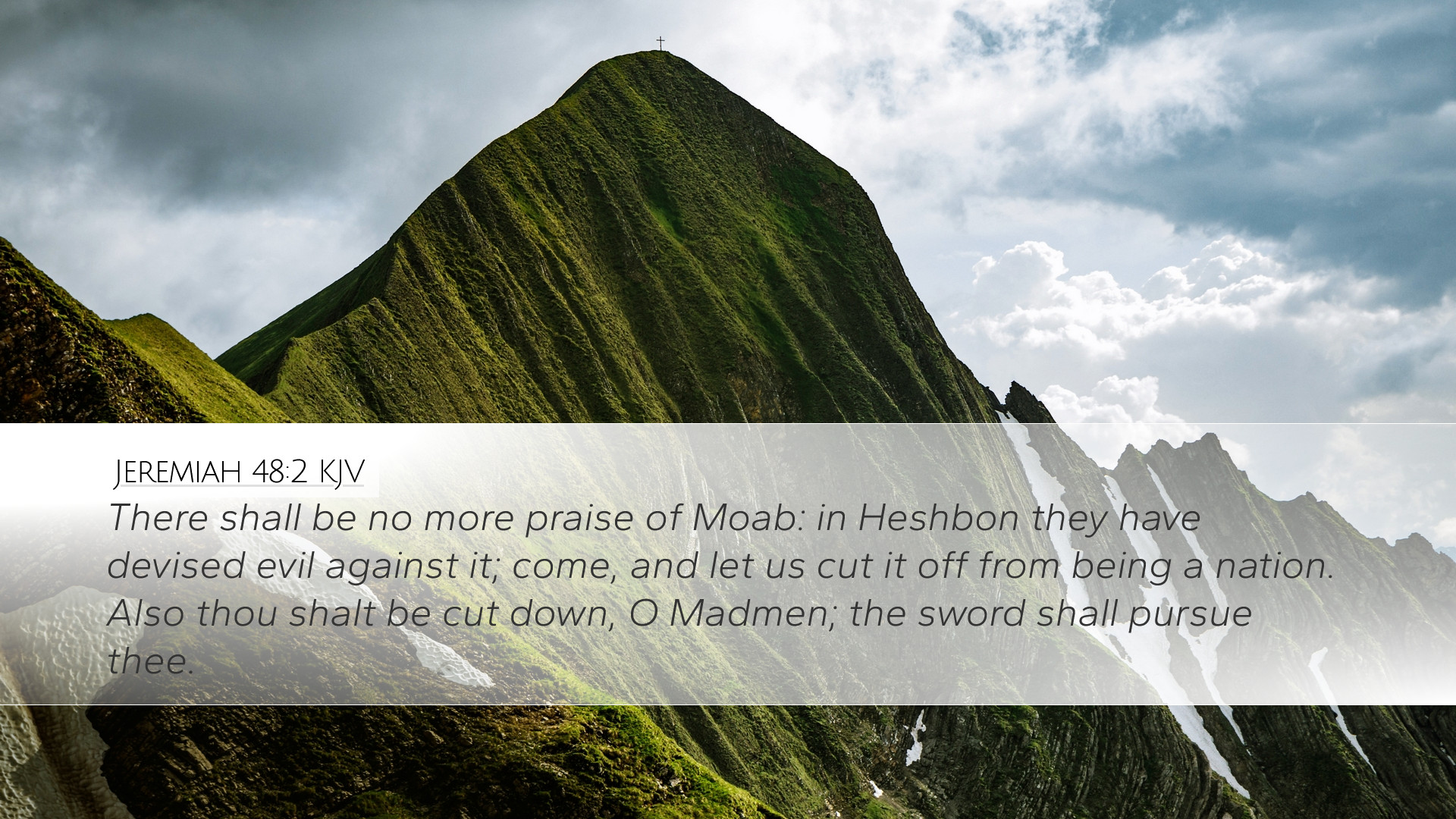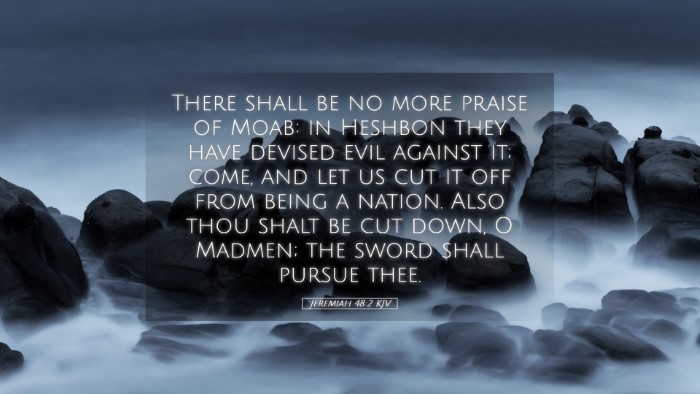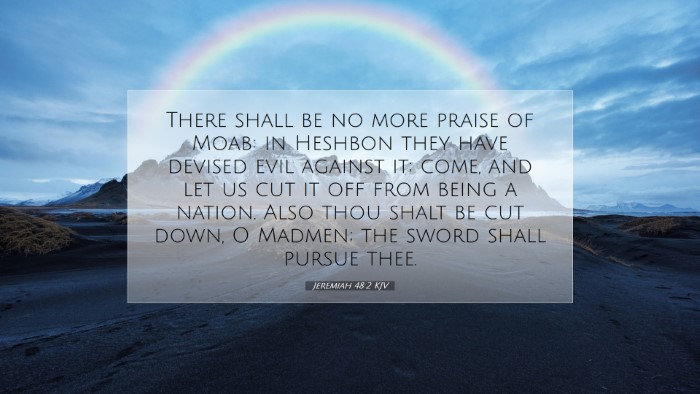Commentary on Jeremiah 48:2
Verse Context: Jeremiah 48:2 states, "There is no more praise of Moab; they have devised evil against the LORD, and have acted presumptuously." This verse serves as a pivotal point in Jeremiah's prophecy concerning Moab, encapsulating themes of judgment, pride, and the downfall of nations.
Overview of Moab's Position
Moab, a nation situated to the east of Israel, had a complex relationship with Israel, characterized by both hostility and kinship. As the descendants of Lot, Moabites are tied to the lineage of Abraham, yet they consistently turned away from the worship of the true God, aligning instead with idolatry and rebellion.
Historical Background
- Political Context: Moab's political maneuvers often placed them in opposition to Israel, particularly during the reign of King David and later the Babylonian invasion.
- Cultural Factors: The Moabites' worship of Chemosh, their national god, contrasted sharply with Yahweh worship and reflected a broader theme of national pride leading to their spiritual downfall.
Commentary Insights
Matthew Henry's Perspective
Matthew Henry emphasizes the profound implications of the phrase "there is no more praise of Moab." He argues that this signifies not just the cessation of national glory but also a divine decree of disgrace. Henry explains that the proud nation of Moab, once relying on their wealth and military prowess, failed to recognize their moral and spiritual deficiencies, leading to God’s judgment.
Albert Barnes’ Exegesis
Albert Barnes provides a detailed analysis of the term "praise," considering it both in a religious context and a socio-political one. Barnes articulates that the downfall of Moab was foretold because of their arrogance and their schemes against the Lord. He suggests that the mention of devising evil indicates a systemic rebellion against God’s authority, suggesting that Moab ultimately saw themselves as invulnerable.
Adam Clarke’s Contributions
Adam Clarke notes that the historical ramifications are significant; the destruction of Moab serves as a warning to all nations regarding the consequences of pride and rebellion against God. He highlights that the reference to "acting presumptuously" underscores a disregard for divine warnings, meaning that Moab's forgetfulness of God's sovereignty ultimately resulted in their demise.
Theological Themes
- Judgment and Grace: This verse illustrates the dual themes of judgment against sin and the overarching grace of God as He calls nations back to repentance.
- The Nature of True Worship: Moab's idolatry serves as a stark contrast to the worship of God. The verse invites believers to assess their own allegiances and heart postures before God.
- The Role of Prophecy: Jeremiah's role as a prophet exemplifies the importance of speaking God’s truth, even when it confronts prevailing cultural norms.
Practical Applications
For pastors and theologians, the narrative surrounding Jeremiah 48:2 is a poignant reminder of the need for vigilance against complacency in faith communities. Some potential applications include:
- Encouraging Humility: Congregations must understand the danger of pride as seen in Moab’s downfall.
- Emphasizing Righteousness: The call to holiness and righteousness should echo throughout preaching and teaching, warning against the consequences of deviation.
- Prophetic Voices Today: Just as Jeremiah delivered difficult messages, modern leaders must be prepared to confront both cultural norms and church complacency.
Concluding Thoughts
The message of Jeremiah 48:2 transcends its immediate context, offering timeless lessons about human pride and divine sovereignty. In studying this verse, scholars, students, and faith leaders are reminded of the importance of remaining grounded in God's truth, as well as the dangers that come with turning away from Him.


